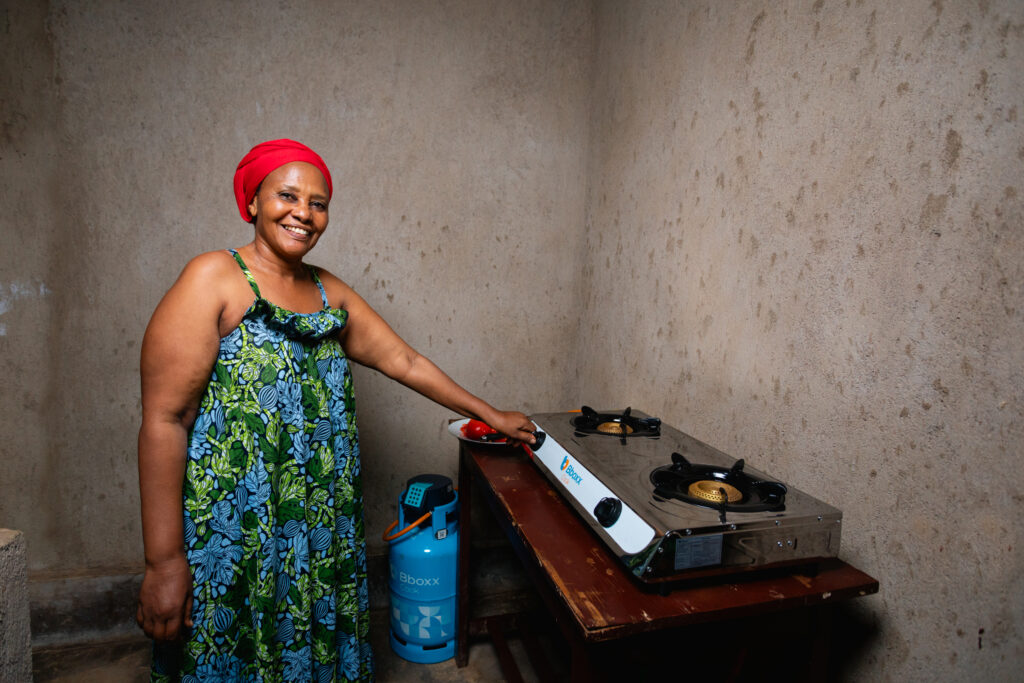Uncovering Fuel Stacking Behaviors and Preferences: A Survey Tool for Clean Cooking Enterprises
Fuel stacking is when a household uses multiple fuels or cooking solutions concurrently. A typical “stack” can include both cleaner fuels, such as ethanol, and polluting fuels, such as charcoal. While fuel stacking per se is not a problem – cooking with a range of solutions and different fuels is common across markets – the continued use of polluting fuels poses a significant challenge in achieving the transition to cleaner and more efficient cooking solutions.
From the perspective of individual clean cooking enterprises, fuel stacking makes it more difficult for these enterprises to remain financially sustainable. To tackle this issue effectively, the Clean Cooking Alliance (CCA)’s User Insights Lab (UIL), in collaboration with researchers at the University of Liverpool and University College London, has developed a survey tool tailored specifically for clean cooking enterprises.
This new tool aims to uncover insights into fuel stacking behaviors among customers and facilitate the design of targeted interventions to promote the adoption of clean cooking technologies. Through the survey, enterprises can surface insights on important aspects of end-user behavior and decision making when it comes to which fuels to use for their cooking needs. The survey covers:
- Current fuel use: questions on which fuels are used in the household, how frequently, and how recently.
- Influences on fuel stacking behavior: questions related to fuel costs, decisions based on the types of meals cooked, equipment compatibility, etc.
- Cooking processes: questions on how compatible cooking technologies are perceived to be with various cooking processes.
- Specific foods: questions on foods or dishes that are cooked on specific types of fuels/technologies for reasons such as practicality, taste, or convenience.
With the support of the University of Liverpool, Bboxx, a pay-as-you-go (PAYGO) provider of liquified petroleum gas (LPG) in Uganda, piloted the survey with their customers. A key insight from the survey was that stacking is most often driven by a preference for cooking specific foods on charcoal. This is both because it is considered by users to be too expensive to cook long-boiling foods like beans and githeri on LPG, and that chapatis tend to burn easily using LPG.
Based on findings from the survey, Bboxx decided to test providing customers with pressure cookers to use for beans and githeri, and non-stick pans for cooking chapatis, along with training on their use. These interventions were successful: there was a 16% increase in the consumption of LPG, and one-third of users in the study eliminated charcoal use entirely.
Another PAYGO provider, MGas, was facing challenges driving more consistent revenue from its customers in Kenya. CCA supported MGas in testing the survey with their customers, which further validated the survey tool and provided MGas with stronger data on their customers’ fuel stacking behavior. In response, MGas decided to test an SMS approach to nudging customer behavior.
 © Daniel Mutema / Clean Cooking Alliace
© Daniel Mutema / Clean Cooking Alliace
Using the Survey
The survey is designed to be used by enterprises and program implementers working across the clean cooking sector. The questions include variations for common technologies and business models that can be refined to reflect the specific context. The survey facilitates the identification of fuel stacking behaviors but also guides the design of targeted interventions. Suggested interventions offer a structured approach to address factors influencing fuel stacking that are identified through the survey. These interventions can be tailored to specific response categories or applied more broadly based on sample findings.
The companion user guide provides details of how the survey was developed and tested, how it should be adapted and implemented, and how the results should be interpreted.
If you are interested in the using the survey or learning more, please email the User Insights Lab at userinsights@cleancooking.org.

